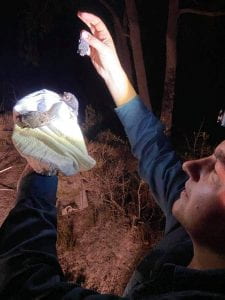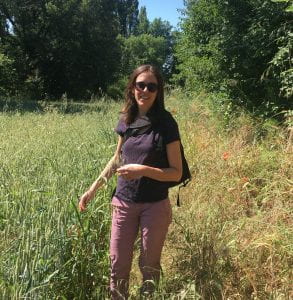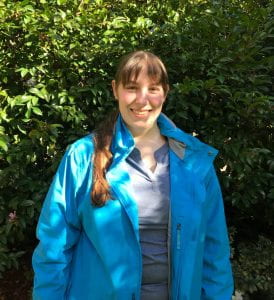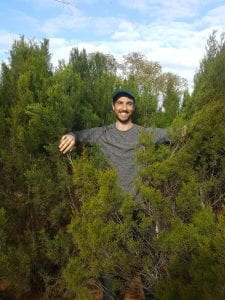Home page
Our team undertakes research on ecological and evolutionary dynamics. We primarily use field data and experiments to explore links between biodiversity and environmental change. We also build models to forecast changes in animal and plant populations, which in turn help us develop strategies to conserve biodiversity. Increasingly, we’re integrating data and models using participatory approaches such as scenario planning that involve communities and policy makers from the get-go.
The group is led by Associate Professor Luke Kelly at the School of Agriculture, Food and Ecosystem Sciences, University of Melbourne. We focus on four main areas of research:
- Plant evolution and global change. We work in Mediterranean-type ecosystems to determine whether plant populations can successfully evolve through key traits to keep up with the rate of environmental change. Recently we have started to incorporate genetics and glasshouse experiments into our work on contemporary evolution, climate change and novel fire regimes.
- Fire ecology and management. A common goal of fire management is to avoid population extinctions due to inappropriate fire regimes. Our work on this front aims to determine what mix of fire-driven variation (sometimes called pyrodiversity) will promote biodiversity and how to achieve it.
- Animal ecology. We undertake field studies of fascinating mammals, birds and reptiles in southern Australia. Through learning about animals we develop and test ecological theory and do practical things like identify critical habitat and determine the best way to manage invasive predators.
- Conservation decision making. Making conservation decisions is hard because ecosystems are complex and there are a range of social and environmental values in play. We support conservation decisions by developing approaches for monitoring biodiversity and exploring how different management strategies perform under possible futures. More and more we find that co-designing scenarios with policy makers, land managers and people affected by decisions leads to better conservation outcomes.
If you’d like to join us or visit us then check out the opportunities page. You can also seek out and follow our individual team members on a variety of social media – we have recently shifted to Bluesky – to keep up with our latest work in the field and lab.
-
A fiery graduation speech
Luke was recently honoured to be the Guest Speaker at the Faculty of Science graduation ceremony at the Royal Exhibition Building. He had a lot of fun crafting a speech that used fire and "heat" as a way to think about making positive change in the world. Drawing on his own experiences in science, he encouraged graduates to use their new …
23 December, 2025 -
Learning from fires in Los Angeles
In 2025, Luke Kelly was hosted on sabbatical by the Department of Ecology and Evolutionary Biology at University of California, Los Angeles. During this time, he visited areas in and around Los Angeles impacted by recent wildfires, alongside Morgan Tingley from UCLA, local ecologists and a writer from the New York Times Magazine. A thoughtful piece by Brooke Jarvis reflects on fire, …
29 August, 2025 -
How does pyrodiversity influence small mammal abundance and genetic diversity?
How does pyrodiversity shape small mammal populations? In a new study in Journal of Applied Ecology, Julianna Santos, Holly Sitters and Luke Kelly explore how fire mosaics influence both the abundance and genetic diversity of small mammals in semi-arid Australia. Using field surveys and genome-wide SNPs for mallee ningaui and Bolam's mouse, Julianna and team found species-specific responses to fire patterns. Mallee …
22 August, 2025 -
Evolutionary implications of trait-fire mismatches for animals
What are the evolutionary implications of changes in fire regimes for animals? Luke Kelly and colleagues explore this in their new paper in Global Change Biology. They build on a recent plant-focused application of the phenotype–environment mismatch concept, extending it to animals to understand the evolutionary and ecological consequences of altered fire regimes. Mismatches are primarily studied in the context of climate-driven changes, …
28 July, 2025 -
Can plants keep up with fire regimes through evolution?
Luke Kelly and colleagues explore the evolutionary consequences of changing fire regimes in their new paper in Trends in Ecology and Evolution. As fire patterns shift across the globe, plant populations need to keep up. Luke and team show that variation in fire-related traits – such as resprouting, serotiny, and bark thickness – is widespread within plant species. This intraspecific variation provides …
14 July, 2025 -
How seeds help us learn about fire in Australian landscapes
Ella Plumanns Pouton, Luke Kelly and team have a new paper on the timing of fires and plant species occurrence in the soil seedbank, in Journal of Applied Ecology. Ella led a team that sampled the soil seedbank across 57 sites that represent a range of fire frequencies (1–9 fires in 81 years) and time since fire (1–81 years). And through a 15-month germination experiment, …
19 September, 2024 -
Using traits to predict the influence of fire on plants
Ella Plumanns Pouton, Luke Kelly and team have a new paper on using plant functional types to predict the influence of fire on species relative abundance – published in Biological Conservation. Ella and team first brought together a wealth of knowledge on the traits that plant species exhibit in response to fire, including whether or not they are stimulated to resprout …
17 April, 2024 -
The use of nest boxes to support bird conservation
Eliza Thompson, Luke Kelly and Rod Keenan have a new paper on nest boxes and animal conservation in the journal Forest Ecology and Management. Nest boxes are widely used to supplement natural tree cavities used by fauna, particularly in “working lands” where large, old trees are cleared or harvested. Eliza led a systematic review to provide a global overview of the scientific …
3 November, 2023
Associate Professor Luke Kelly
Email: ltkelly@unimelb.edu.au
Luke is an Associate Professor in Quantitative Ecology at the University of Melbourne. He leads research teams working locally and internationally. He studies the dynamics of plant and animal populations, educates about biodiversity and human well-being, and collaborates with diverse stakeholders to prevent species extinction. His current research focuses on understanding how ecological and evolutionary processes shape the diversity of life, particularly under changing fire regimes. Luke believes that science is at its best when inclusive and collaborative and he serves as Director for Culture, Diversity and Inclusion in the School of Agriculture, Food and Ecosystem Sciences.

Samantha Girvan
Email: sgirvan@student.unimelb.edu.au
Sam is a PhD candidate investigating the ecology of bilbies and other native mammals in semi-arid Australia. She is particularly interested in the role of habitat refuges in buffering mammal populations from modified patterns of fires, climate and invasive predators. Sam uses a mix of field studies, manipulative experiments and spatial modelling as part of her PhD research.

Dr Ella Plumanns Pouton
Email: e.plumanns@creaf.cat
Ella is a postdoctoral researcher working at the Centro de Investigación Ecológica y Aplicaciones Forestales (CREAF) in Spain and The University of Melbourne. She leads ecological research in Spain that supports the European Union’s biodiversity and climate goals. In Australia, her work examines the role of ecological burning and other types of fire across a wide range of ecosystems. She used a combination of field work, glasshouse studies and modelling to understand interactions between fire and other ecological processes.

Dr Leanne Greenwood
Leanne is a postdoctoral researcher working in the School of Agriculture, Food and Ecosystem Sciences. Her work is driven by a deep interest in fire ecology and mycology, and by a commitment to cross-cultural and cross-disciplinary collaboration. Leanne is working on the Fire mosaics in landscape planning project, a collaborative initiative between The University of Melbourne and Charles Sturt University, supported by Natural Hazards Research Australia and government agencies across southern Australia.
Dr Jeremy Johnson
Jeremy is a postdoctoral researcher working on the Fire mosaics in landscape planning project, a collaborative initiative between Charles Sturt University and The University of Melbourne, supported by Natural Hazards Research Australia. He completed his PhD in 2025 in the School of Agriculture, Food and Ecosystem Sciences. He is proud of his heritage with the Darug people of the Sydney region. His PhD research focused on how mammals respond to wildfires in the Central Highlands of Victoria.

Lorien Francis
Lorien is an honours student in the School of Agriculture, Food and Ecosystem Sciences at The University of Melbourne. In 2026, she is starting new research on plants and their fire-related traits in heathlands and forests of southern Australia.
RESEARCH ASSOCIATES AND RECENT GRADUATES
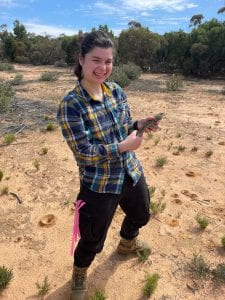
Dr Eliza Thompson
Eliza graduated with a PhD from the School of Agriculture, Food and Ecosystem Sciences in 2025. Her PhD research explored management options to increase the diversity of insectivorous birds in working lands. Eliza is passionate about science communication; you can find her on Instagram (@elizathompson98).

Emily Grining
Emily graduated with an Bachelor of Science (Honours) in 2025. During her honours research she investigated the ecology of agile antechinus and bush rats in heathy dry forests of western Victoria. She also explored methods for detecting and monitoring small mammals in areas that experience bushfires and planned burns. She is proud of her heritage as a Palawa woman.
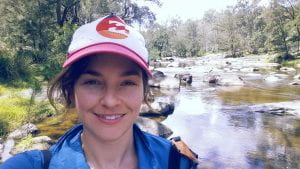
Dr Michelle Gibson
Michelle was a Research Fellow in the School of Agriculture, Food and Ecosystem Sciences from 2021-2024 – and now works at Monash University. Originally from California, she has worked in Mediterranean ecosystems in the southwest U.S.A. and South Africa’s Cape region conducting research on invasive plants, pollination, and human disturbances on bird communities. Her work in Australia has involved desert bird ecology and measuring effectiveness of restoration actions for Australian woodland birds. Her research at University of Melbourne examined the effects of bushfires and planned burning on ecosystem resilience with a focus on avifauna monitoring across diverse ecosystems in Victoria.
Dr Amanda Lo Cascio
Amanda completed her PhD in 2024 in the School of Agriculture, Food and Ecosystem Sciences. Her research focused on the distribution and ecology of microbats in stringy-bark woodlands of Victoria. Amanda used a combination of field surveys and genomic techniques to explore the responses of microbats to landscape connectivity, fire regimes and other environmental gradients. Amanda is now a postdoc at Deakin University where she is expanding her research on wildlife ecology and spatial modelling.
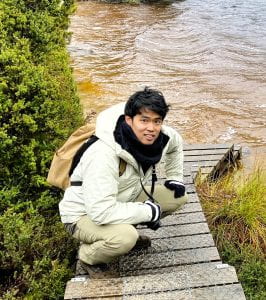
Takuya Nomura
Takuya completed a Master of Ecosystem Management and Conservation in the School of Agriculture, Food and Ecosystem Sciences in 2024. He has about 10 years of experience as a consultant in forest management and environmental conservation, with much of that work focused in Asia and including Vietnam, Indonesia and India. His research focused on developing and comparing ecosystem and biodiversity metrics to assist the private sector in evaluating their ecological footprint, through a case study in South Africa. Takuya was supervised by Prof Emily Nicholson and A/Prof Luke Kelly.
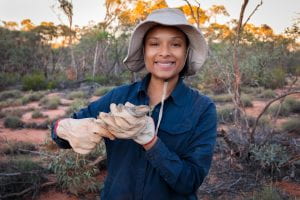
Dr Julianna Santos
Email: santos.j@unimelb.edu.au
Julianna completed her PhD in 2024 at the School of Agriculture, Food and Ecosystem Sciences. She comes from Brazil, where she studied the ecology and conservation of Neotropical mammals, including the population dynamics and diet of wild cats and several invasive species. Her PhD was on the ecology, genetic diversity and population dynamics of small mammals in fire-prone landscapes in southern Australia. Julianna is now a lecturer the School of Agriculture, Food and Ecosystem Sciences at University of Melbourne, based in the Quantitative and Applied Ecology Group, and is working on methods to support the implementation of the Red List of Ecosystems and targets of the Kunming-Montreal Global Biodiversity Framework.
Dr Kate Giljohann
Kate was a Research Fellow at The University of Melbourne from 2017-2022 – and now works at CSIRO Land and Water. She is particularly interested in plants, conservation and the ecology of disturbances. Her research encompasses population, community and landscape-level analyses, with a focus on assisting environmental management. In collaboration with the Victorian Department of Environment, Land, Water and Planning, Kate developed a suite of models to enhance the evaluation of alternative fire management strategies for biodiversity.
![]()
Dr Katharine Senior
Kate was a Research Fellow in the School of Agriculture, Food and Ecosystem Sciences – and now works as an infectious disease modeller at the Telethon Kids Institute. She is interested in how plants in different ecosystems respond to bushfires and planned burning. Kate completed her PhD as part of the Spatial Solutions Fire Ecology Project, with a focus on using field experiments and models to understanding the impacts of fire on mammals and reptiles in the Murray Mallee region of southern Australia.
Dr Fred Rainsford
Fred is a Research Fellow at La Trobe University, Research Centre for Future Landscapes, and a member of the Spatial Solutions Fire Ecology Project (a collaboration between University of Melbourne and La Trobe University). He is particularly interested in the ecology and conservation of birds. He recently completed his PhD on how fire shapes bird and plant communities in a range of fire-prone ecosystems. His current research focuses on the drivers of bird diversity in agricultural landscapes and woodland ecosystems. This work aims to link farm-scale bird diversity with on-farm natural capital and to develop tools that will lead to more sustainable agricultural practices.
Lily Wheeler
Lily completed her Master of Science (Ecosystem Science) within the School of Ecosystem and Forest Science in 2020 – and his since taken up a PhD in the School. Her research interest is in biodiversity conservation, with a focus on mammal species. In her Masters research Lily investigated how landscape properties shape native small mammal distributions in western Victoria. Her project focused on fire and vegetation properties and Lily hopes to aid biodiversity conservation by better understanding the ecology of common and threatened species.
Isaac Kreger
Isaac completed his Masters of Philosophy (Science) in the School of Ecosystem and Forest Sciences in 2021. He now works in ecosystem restoration in California, USA. Isaac studied how plant traits, such as bark, influence mortality and survival during and after fire. He used plant traits to predict vegetation response to fire and to understand how trees survive in semi-arid landscapes.
Journal Articles
Thompson, E.K., Keenan, R.J., Kelly, L.T. (2025) Influence of landscape composition and configuration on birds in working lands with extensive forest plantations. Landscape Ecology. Full text
Plumanns-Pouton, E., Santos, J.L., Aponte, C., Brotons, L., Kelly, L.T., Mason, S.C., Parris, K., Ponisio, L., Keith, D.A. (2025) The mechanisms through which fire drives population change in terrestrial biota (2025) Global Change Biology. Full text
Johnson, J., Kelly, L.T., Collins, L., Stewart, S., Nitschke, C.R. (2025) Drought, topography, and forest management shape wildfire occurrence and severity in montane Australian landscapes. Science of The Total Environment. 998, 180207 Full text
Santos, J.L., Sitters, H., Kelly, L.T. (2025). How does pyrodiversity influence small mammal abundance and genetic diversity?. Journal of Applied Ecology. 10.1111/1365-2664.70143 Full text
Kelly, L.T., Hoffmann, A.A., Nitschke, C.R., Pausas, J.G., Sanderfoot, O.V., Tingley, M.W. (2025) Evolutionary implications of trait-fire mismatches for animals. Global Change Biology. 10.1111/gcb.70368. Full text
Kelly, L.T., Hoffmann, A.A., Nitschke, C.R., Pausas, J.G. (2025) Can plants keep up with fire regime changes through evolution? Trends in Ecology & Evolution. 40, 663-672. Full text
Cascio, A.L., Kasel, S., Di Stefano, J., Sitters, H., Kelly, L.T. (2025) How pyrodiversity shapes bat communities in a southeastern Australian woodland. Biological Conservation. 305, 111059. Full text
Puig-Gironès, R. et al. (2025) The use of fire to preserve biodiversity under novel fire regimes. Philosophical Transactions B. 380, 20230449. Full text
Linley, G.D. et al. (2025) ‘Megafire’—You May Not Like It, But You Cannot Avoid It. Global Ecology and Biogeography. 34, e70032. Abstract
Plumanns-Pouton, E., Kasel, S., Penman, T., Swan, M., Kelly, L.T. (2024) Soil seedbanks are shaped by the timing of fires in a Mediterranean-type ecosystem. Journal of Applied Ecology. Full text
Plumanns-Pouton, E., Swan, M., Penman, T., Kelly, L.T. (2024) How do intervals between fires influence canopy seed production and viability? Functional Ecology. Full text
Plumanns-Pouton, E., Swan, M., Penman, T., Kelly, L.T. (2024) Using plant functional types to predict the influence of fire on species relative abundance. Biological Conservation. Full text
Thompson, E.K., Keenan, R.J., Kelly, L.T. (2023) The use of nest boxes to support bird conservation in commercially managed forests: A systematic review. Forest Ecology and Management. 550: 121504. Full text.
Rainsford, F.W., Giljohann, K.M., Bennett, A.F., Clarke, M.F., MacHunter, J., Senior, K., Sitters, H., Watson, S., Kelly, L.T. (2023) Ecosystem type and species’ traits help explain bird responses to spatial patterns of fire. Fire Ecology. 19 (59). Full text.
Kelly, L.T., Fletcher, M.S., Oliveras Menor, I., Pellegrini, A., Plumanns-Pouton, E., Pons, P., Williamson, G.J., Bowman, D.M.J.S. (2023) Understanding fire regimes for a better Anthropocene. Annual Review of Environment and Resources. PDF
Plumanns-Pouton, E., Swan, M., Penman, T., Collins, L., Kelly, L.T. (2023) Time since fire shapes plant immaturity risk across fire severity classes. Fire Ecology. 19 (25). Full text.
Senior, K.L., Giljohann, K.M., McCarthy, M.A., Kelly, L.T. (2022). A field test of mechanisms underpinning animal diversity in recently burned landscapes. Journal of Applied Ecology. DOI:10.1111/1365-2664.14315 Full text.
Santos, J.L., Hradsky, B.A., Keith, D.A., Rowe, K., Senior, K.L., Sitters, H., Kelly, L.T. (2022). Beyond inappropriate fire regimes: a synthesis of fire-driven declines of threatened mammals in Australia. Conservation Letters. Full text
Santos, J.L., Sitters, H., Keith, D.A., Geary, W.L., Tingley, R., Kelly, L.T. (2022). A demographic framework for understanding fire-driven reptile declines in the ‘land of the lizards’. Global Ecology and Biogeography. Full text
Linley, G.D., Jolly, C.J., Doherty, T.S., Geary, W.L., Armenteras, D., Belcher, C.M., Bliege Bird, R., Duane, A., Fletcher, M.S., Giorgis, M.A., Haslem, A., Jones, G.M., Kelly, L.T., Lee, C.K.F., Nolan, R.H., Parr, C.L., Pausas, J.G., Price, J., Regos, A., Ritchie, E.G., Ruffault, J., Williamson, G.J., Wu, Q., Nimmo, D.G. (2022). What do you mean, ‘megafire’?. Global Ecology and Biogeography. Full text
Rainsford, F. W., Kelly, L. T., Leonard, S. W., & Bennett, A. F. (2022). Fire and functional traits: Using functional groups of birds and plants to guide management in a fire‐prone, heathy woodland ecosystem. Diversity and Distributions, 28, 372-385. Abstract
Rainsford, F. W., Kelly, L. T., Leonard, S. W., & Bennett, A. F. (2021). Post-fire habitat relationships for birds differ among ecosystems. Biological Conservation, 260, 109218. Abstract
Senior, K.L., Giljohann, K.M., McCarthy, M.A., Rainsford, F.W., Kelly, L.T. (2021) Predicting mammal responses to pyrodiversity: From microbats to macropods. Biological Conservation 256, 109031, Full text
Clarke, M.F., Kelly, L.T., Avitabile, S.C., Benshemesh, J., Callister, K.E., Driscoll, D.A., Ewin, P., Giljohann, K., Haslem, A., Kenny, S.A. and Leonard, S., Ritchie, E.G., Nimmo, D.G., Schedvin, N., Schneider, K., Watson, S.J., Westbrooke, M., White, M., Wouters, M.A. and Bennett, A.F. 2021. Fire and Its Interactions With Other Drivers Shape a Distinctive, Semi-Arid ‘Mallee’ Ecosystem. Frontiers in Ecology and Evolution. D0I:10.3389/fevo.2021.647557 Full text
Rainsford, F.W., Kelly, L.T., Leonard, S.W.J., Bennett, A.F. (2021) How does prescribed fire shape bird and plant communities in a temperate dry forest ecosystem? Ecological Applications, e2308, Abstract
Driscoll, D.A., Armenteras, D., Bennett, A.F., Brotons, L., Clarke, M.F., Doherty, T.S., Haslem, A., Kelly, L.T., Sato, C.F., Sitters, H. and Aquilué, N., Bell, K., Chadid, M., Duane, A., Meza‐Elizalde, M.C., Giljohann, K.M., González, T.M., Jambhekar, R., Lazzari, J., Morán‐Ordóñez, A., Wevill, T. (2021). How fire interacts with habitat loss and fragmentation. Biological Reviews, doi.org/10.1111/brv.12687, Abstract
Kelly, L.T., Giljohann, K.M., Duane, A., Aquilué, N., Archibald, S., Batllori, E., Bennett, A.F., Buckland, S.T., Canelles, Q., Clarke, M.F., Fortin, M. Hermoso, V., Herrando, S., Keane, R.E., Lake, F.K., McCarthy, M.A., Morán-Ordóñez, A., Parr, C.L., Pausas, J.G., Penman, T.D., Regos, A., Rumpff, L., Santos, J.L., Smith, A.L., Syphard, A.D., Tingley, M.W., Brotons, L. (2020) Fire and biodiversity in the Anthropocene. Science, 370, eabb0355 DOI: 10.1126/science.abb0355. PDF
Reprint: https://protect-au.mimecast.com/s/2Y00Cp8AxKsn50opGIYl0j4?domain=science.sciencemag.org
Full text: https://protect-au.mimecast.com/s/Tej-Cq7By5s89yNJDcEwdPj?domain=science.sciencemag.org
Senior, K.L., Ramsauer, J., McCarthy, M.A., Kelly, L.T. (2020) The influence of weather and moon phase on small mammal activity. Australian Mammalogy. Abstract
Rainsford, F., Kelly, L.T., Leonard, S., Bennett, A.F. (2020). Post-fire development of faunal habitat depends on plant regeneration traits. Austral Ecology. Abstract.
Watermeyer, K.E., Guillera‐Arroita, G., Bal, P., Burgass, M.J., Bland, L.M., Collen, B., Hallam, C., Kelly, L.T., McCarthy, M.A., Regan, T.R., Stevenson, S., Wintle, B.A., Nicholson, E. Using decision science to evaluate global biodiversity indices. (2020) Conservation Biology. Abstract.
Hradsky, B.A., Kelly, L.T., Robley, A.L., Wintle, B.A. (2019) FoxNet: an individual-based modelling framework to support red fox management. Journal of Applied Ecology, 56, 1460-1470. Abstract
Duane, A., Kelly, L.T., Giljohann, K.G., Batllori, E., McCarthy, M., Brotons, L. (2019) Disentangling the influence of past fires on subsequent fires in Mediterranean landscapes. Ecosystems. Full text
Nimmo, D., Avitabile, S., Banks, S., Bliege-Bird, R., Callister, K., Clarke, M., Dickman, C., Doherty, T., Driscoll, D., Greenville, A., Haslem, A., Kelly, L.T., Kenny, S., Lahoz-Monfort, J., Lee, C., Leonard, S., Moore, H., Newsome, T., Parr, C., Ritchie, E., Schneide, K., Turner, J., Westbrooke, M., White, M., Wouters, M., Bennett, A. (2019) Animal movements in fire-prone landscapes. Biological Reviews doi:10.1111/brv.12486 Abstract
Pollock, L.J., Kelly, L.T., Thomas, F.M., Soe, P., Morris, W.K., White, M. Vesk, P.A (2018) Combining functional traits, the environment, and multiple surveys to understand semi-arid tree distributions. Journal of Vegetation Science, 29, 967-977. Abstract
Kelly, L.T., Brotons, L., Giljohann, K.M., McCarthy, M.A., Pausas, J.G. & Smith, A.L. (2018) Bridging the divide: integrating animal and plant paradigms to secure the future of biodiversity in fire-prone ecosystems. Fire doi: 10.3390/fire1020029 PDF
Kelly, L.T., Haslem, A., Murphy, B (2018) Managing fire for plant and animal conservation. Austral Ecology doi:10.1111/aec.12604 PDF
Giljohann, K.M., Kelly, L.T., Connell, J., Clarke, M., Clarke, R., Regan, T., McCarthy, M (2018) Assessing the sensitivity of biodiversity indices used to inform fire management. Journal of Applied Ecology, 55, 461-471. Abstract
Kelly, L.T., Brotons, L (2017) Using fire to promote biodiversity. Science, 355, 1264-1265. PDF
Kelly, L.T., Haslem, A., Holland, G.J., Leonard, S., MacHunter, J., Bassett, M., Bennett, A.F., Bruce, Chia, E., Christie, F., Clarke, M., Di Stefano, J., Loyn, R., McCarthy, M., Pung, A., Robinson, N., Sitters, H., Swan, M., York, A (2017) Fire regimes and environmental gradients shape vertebrate and plant distributions in temperate eucalypt forests. Ecosphere 8, e01781. Full text
Kelly, L.T., Haslem, A., Holland, G.J., Leonard, S., MacHunter, J., Bassett, M., Bennett, A.F., Bruce, Chia, E., Christie, F., Clarke, M., Di Stefano, J., Loyn, R., McCarthy, M., Pung, A., Robinson, N., Sitters, H., Swan, M., York, A (2017) Fire regimes and environmental gradients shape bird, mammal and plant distributions in temperate eucalypt forests. The Bulletin of the Ecological Society of America. DOI:10.1002/bes2.1322 Full text
Kelly, L.T., Brotons, L., & McCarthy, M.A (2017) Putting pyrodiversity to work for animal conservation. Conservation Biology, 31, 952-955 PDF
Fardila, D., Kelly, L.T., Moore, J.L., & McCarthy, M.A. (2017) A systematic review reveals changes in where and how we have studied habitat loss and fragmentation over 20 years. Biological Conservation, 212,Part A, 130-138. Abstract
Giljohann, K.M., McCarthy, M.A., Keith, D.A., Kelly, L.T., Tozer, M.G., Regan, T.J (2017) Interactions between rainfall, fire and herbivory drive resprouter vital rates in a semi-arid ecosystem. Journal of Ecology DOI: 10.1111/1365-2745.12768 Abstract
Volunteers
We have opportunities in 2026 for volunteers to learn new skills and visit amazing places.
New and ongoing fieldwork includes:
- Plant surveys and measurement of fire-related traits as part of large-scale biodiversity monitoring.
- Mammal surveys in semi-arid Australia.
Get in touch with Luke Kelly directly for specific details and dates.
Students
There are a range of options for students to start doing research with us at the University of Melbourne including: a Bachelor of Science (Degree with Honours) (a one-year program for students who have achieved academic excellence and wish to build upon their undergraduate degree), a Master of Ecosystem Management and Conservation (a two-year program of coursework that can include a research project), a Master of Philosophy (Science) (a two-year program working on a research project), and a Doctor of Philosophy (Science) (a four-year PhD program). A range of scholarships are available from the University, and we regularly host interns from international institutions.
Undergraduate students at the University of Melbourne have the opportunity to enrol in one of the subjects that Luke Kelly coordinates – including Fire in the Australian Landscape (FRST20015) – and Masters students can enroll in Assessing Ecosystems and Their Values (ENST90044).
Early Career Researchers
A range of grants are available for early career researchers at University of Melbourne including McKenzie Postdoctoral Research Fellowships. The School of Agriculture, Food and Ecosystem Sciences is also keen to support applications for Discovery Early Career Researcher Awards (DECRA) and international fellowship schemes.
Visitors
Visitors are always welcome. We’re based in Biosciences 1 (Building 123) at Parkville, University of Melbourne. We run a weekly lab meeting and encourage visitors to attend. For longer visits, we can point you to some schemes for visiting fellowships. Please contact Luke Kelly directly if you’re interested in visiting us.


